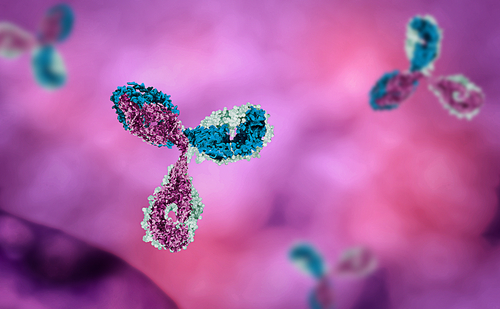Phase 1 Trial to Test AL002, Targeting Brain’s Immune System, as Way of Treating Alzheimer’s

Alector’s candidate immune system-targeting therapy for Alzheimer’s disease, called AL002, will be evaluated for safety and tolerability in a first Phase 1 clinical trial, the company announced.
AL002 is an antibody that targets and activates TREM2 (triggering receptor expressed on myeloid cells 2), a receptor selectively expressed on microglia — a group of cells that act as the main form of immune defense in the central nervous system.
Boosting TREM2 levels in the brain may ease the severity of Alzheimer’s, or stop disease progression, by promoting a more optimal response among microglia. Studies have also associated mutation in the normal sequence of the TREM2 gene with an increased risk of late-onset Alzheimer’s disease.
“[W]e believe that Alzheimer’s disease is caused by a dysfunctional brain immune system that, due to aging or genetic mutations, fails to clear pathological proteins, nourish nerve and glial cells, and promote neuronal connections,” Arnon Rosenthal, PhD, a co-founder and chief executive officer of Alector, said in a press release.
The INVOKE study (NCT03635047), which will soon begin to recruit in Australia, will randomize about 40 healthy adult volunteers to receive single escalating doses of AL002 — participants will be divided into 5 groups — or a placebo solution delivered intravenously (into the blood).
This will be followed by a second, multiple-dose (MD) phase, involving about 12 Alzheimer’s patients with mild to moderate disease.
Its primary goal is to determine the therapy’s safety and tolerability, as well its pharmacokinetics (the movement of compound into, through, and out of the body; essentially how the body affects a medicine) and pharmacodynamics (the interactions between the body and a compound; essentially, how a medicine affects the body). Measures will be taken of AL002 levels in blood serum and cerebral spinal fluid (CSF).
Preclinical studies in TREM2-deficient mice engineered to develop Alzheimer’s found microglia without the TREM2 receptor could not respond to amyloid-beta plaques, one of the key in this disease.
Modulation of TREM2 by AL002 may “rejuvenate the aging brain immune system,” Rosenthal added, providing a way to slow or stop disease progression.
“Today, most therapeutic approaches for the treatment of Alzheimer’s disease address only one of the multiple pathologies observed in the disease, such as amyloid-beta or TAU proteins,” added Robert Paul, the company’s chief medical officer. “AL002 is designed to address multiple brain pathologies in parallel by modulating immune function. We … look forward to further understanding its potential through this trial.”
Alector is developing AL002 in partnership with AbbVie — along with AL001, a potential immune system-targeting treatment for frontotemporal dementia — under an agreement reached in 2017.
A third potential therapy, called AL003, targets SIGLEC-3, a transmembrane receptor expressed on cells of myeloid lineage — those that give rise to many cells present in the blood — that has also been identified as a risk factor for Alzheimer’s disease.






